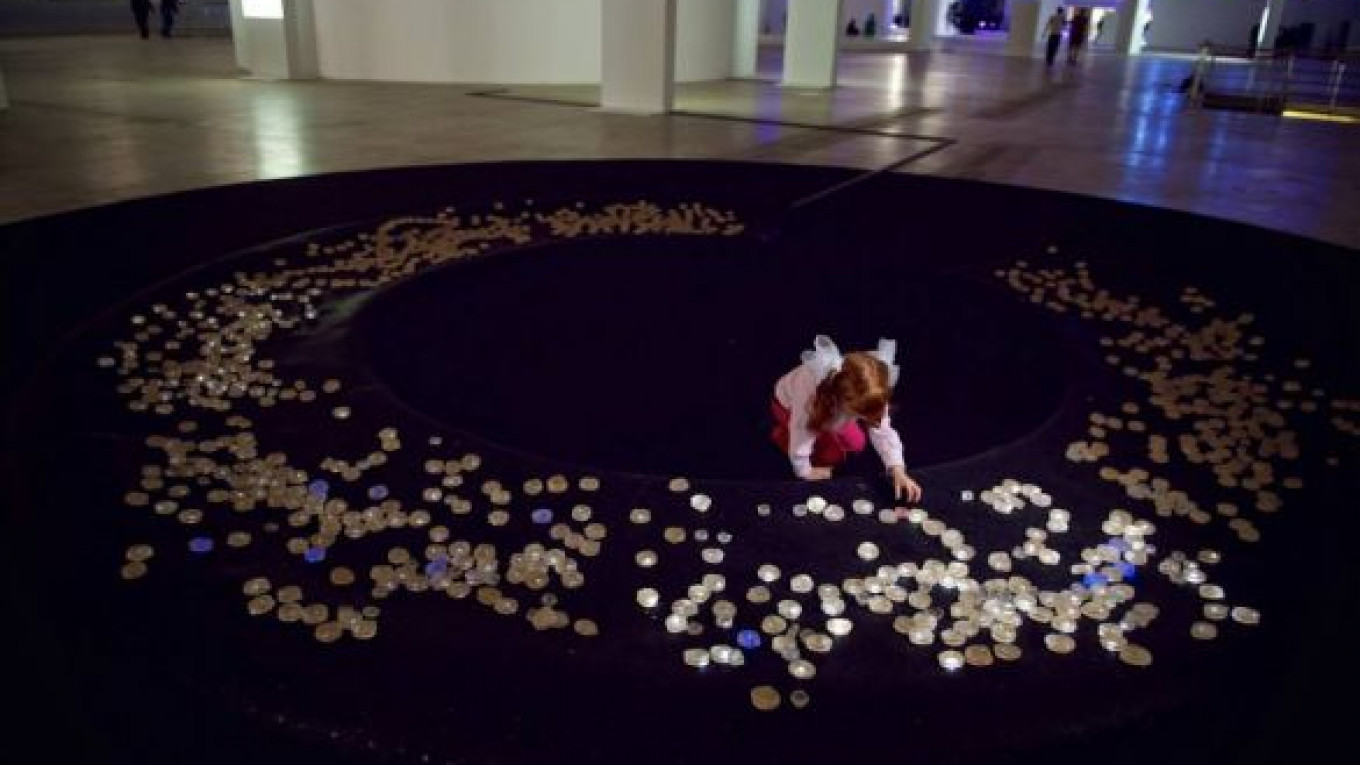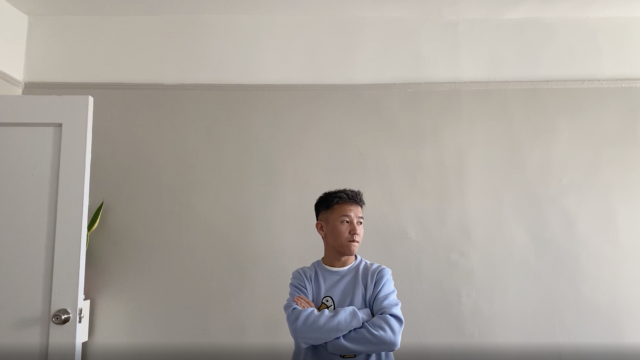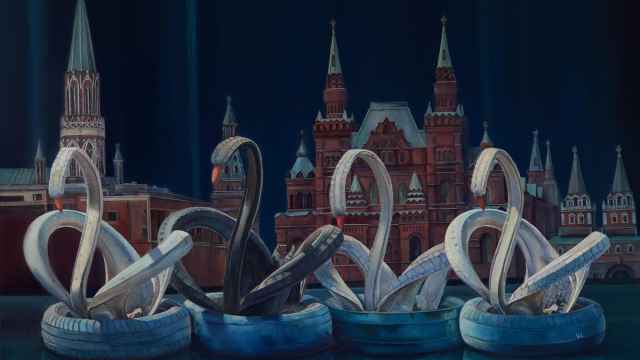The original Latin word "hybrida" means the "offspring of a tame sow and wild boar, child of a freeman and slave," according to its centuries-old definition. But the fourth annual Hybrid Art Exhibition, now showing at Moscow's Manezh, finds itself with "hybrid" in the title primarily because it is Lexus' show.
Excusing the front-and-center plug therein for the luxury car manufacturer, the show stands out as a fine experience that is a hybrid of, on one hand, typically esoteric modern art posturings, and on the other, altogether fabulous technology showpieces.
You know you're in the presence of good technology when it intimidates you. Such is the case with Julius Von Bismark's "Mirror Perpendicular to the Bisectrix Between Two Pairs of Eyes." It is a dance-floor-sized circlet of twelve AI-wired vanity mirrors on poles.
When you walk up to one of the mirror discs, it moves using facial-recognition technology to avert itself from your eyes and simultaneously seeks out another pair of eyes in the room. It holds this angle, and you find yourself locking eyes with another visitor. It is impossible to see your own reflection, only the reflection of the person in whose gaze you became trapped. Very enjoyable, especially if you can deploy a good wink.
"Materialization — Materialization" is just a sunken water feature, the size of a hot tub, in which multi-colored humanoid images fade in and out of projection underwater. Bypass this unless you've just watched the Lexus / Weinstein Company short film "Pupil," which screens at the exhibition, because there's a great synergy here.
"Pupil" screens along with some other great shorts on loop at the pop-up cinema by the entrance. There's so much standing and slow-shuffling at exhibitions that your legs invariably fatigue, and all benefit from a sit-down element. The quality of what plays here is terrific, in particular the istochnik (fountain)-themed "A Better Tomorrow."
"Crystal" is an arrangement of about a hundred matchbox-sized crystal-encrusted LED candles laid out on the ground. The contrivance here that if you stand near them, they light up. Pick them up, and they lose their charge. In the dimmed-lighting of the hall, they are charming, with a slight religious bent, given that placing them down on the mat is akin to lighting a church candle.
One visitor picked up and arranged a few of them into a heart shape, spelling out two sets of initials on either side of the heart. I can only assume the initials included were those of his female companion who, behind him, tempered embarrassment with delight.
In 1962, Khrushchev walked along this same Manezh hall floor space and derided nonconformist art as degenerate art, working himself into a fury and threatening the deportation of modern artists present in the room who didn't pursue a straightforward appeal to workers and peasants. "The Color of Shadow" is anything but straightforward and would induce similar distaste. The viewer stands in front of a wall of color, and, as if stepping into Bond film opening credits, their on-screen silhouette melts and changes shade in psychedelic freshness using the motion-sensitive projection content.
The other of two interactive silhouette showpieces is Philip Worthington's installation "Shadow Monsters," which is a hit with kids. Standing in front of a screen, your shadow grows horns, fins, antennae, and if you do "that hand-silhouette bunny thing," jaws and beady eyes pop up. The show is certainly child-friendly. And car-nut-friendly — although arguably the two tread similar ground — as there's an array of Lexi on display by the entrance (your humble correspondent prefers the Latin scholarly allusions of "Lexi," spurning the lisp-inducing linguistic monster that is "Lexusses").
The safest way to legitimize contemporary art is to technologize it. As with many modern exhibitions, there comes a point at which to get your smartphones out and play a sort of air-hockey via "Octocloud." "Octocloud" is a spiky 3D table that is visually quite impressive, but the value here is that you connect to the hall WiFi and move your player around the table by finger-flicks on your own dear smartphone.
On the whole, the exhibition should be attended with a view to play around, mildly, and have fun engaging with the pieces. The exhibition is not the place for slow nodding and chin stroking, going around saying X is a metaphor for Y, etc. This exhibition is a spot of fun. It's also a spot of exercise by virtue of the necessity to trek between the pieces.
The Manezh is a catastrophically big a venue for this show. With nine focal features to view, the Manezh is designed with enough square footage to house a small army, technically, to house a regiment. There is simply too much empty space between the installations, and the dim lighting necessary to make them work simply doesn't work for the walks between them.
Having said that, if the worst thing about an exhibition is the space between the things exhibited, then it's hardly a deal-breaker.
Lexus Hybrid Art runs until Aug. 22 at Moscow Manege, 1 Manezh Square, Metro Biblioteka Imeni Lenina. www.hybridart.ru/en
A Message from The Moscow Times:
Dear readers,
We are facing unprecedented challenges. Russia's Prosecutor General's Office has designated The Moscow Times as an "undesirable" organization, criminalizing our work and putting our staff at risk of prosecution. This follows our earlier unjust labeling as a "foreign agent."
These actions are direct attempts to silence independent journalism in Russia. The authorities claim our work "discredits the decisions of the Russian leadership." We see things differently: we strive to provide accurate, unbiased reporting on Russia.
We, the journalists of The Moscow Times, refuse to be silenced. But to continue our work, we need your help.
Your support, no matter how small, makes a world of difference. If you can, please support us monthly starting from just $2. It's quick to set up, and every contribution makes a significant impact.
By supporting The Moscow Times, you're defending open, independent journalism in the face of repression. Thank you for standing with us.
Remind me later.







